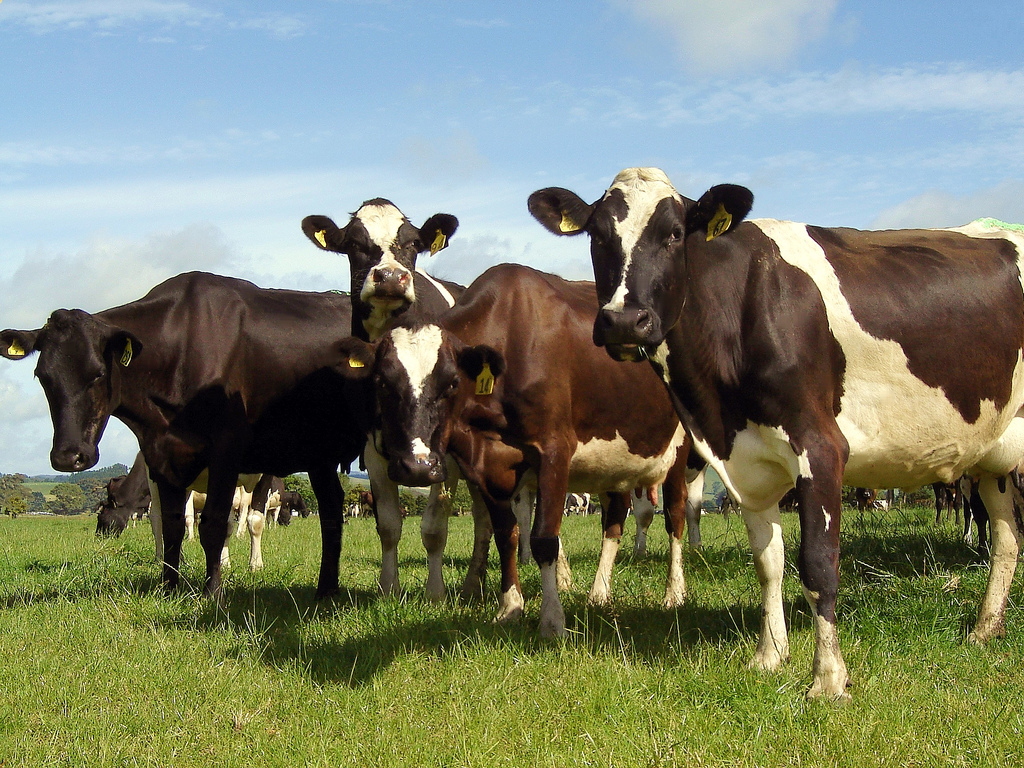
Enjoying Oregon Cows’ Less Savory Products
Oregon is a great place to be if you’re in the energy business. Energy efficiency and green energy are welcomed, if not prioritized, by industry and consumers alike. Additionally, prices stay low because of our great ability to harness hydropower. But these seemingly positive aspects of Oregon’s energy landscape may undermine one of the most promising renewable energy systems being developed today: dairy digestion.
Biogas, the product of methane capture from the anaerobic decomposition of cow manure, can be burned to generate electricity or heat, refined to be injected directly into natural gas pipelines, or compressed to be used as a transportation fuel. Environmental benefits include greenhouse gas abatement, odor reduction, water quality protection, nutrient management, reduced animal and food waste, and avoided energy use. Dairy digestion boasts benefits other, more conventional, renewable energy technologies, such as wind and solar power, cannot claim. For one, it addresses emission of methane, a greenhouse gas over 20 times more potent than carbon dioxide. The Climate Trust estimates that dairy digesters have about five times the greenhouse gas benefit of other similarly sized renewable energy projects, because they avoid these powerful methane emissions. Moreover, energy production from dairy digesters is uninterrupted and reliable year-round because it is not dependent on weather conditions.
So with this long list of benefits why are there only eight digesters currently operating on dairy farms in Oregon? A state where the U.S. Environmental Protection Agency’s AgStar program says as many as 80 farms have the right conditions—animal type, manure management method, and operational size—to host a successful digester. That’s a four-part answer, one that deals with capital, revenue, policy, and adroit navigation of these three.
Any business investment is directed by the amount and type of revenue that can be expected after a project becomes operational. Policy initiatives can either support or hinder these efforts. In the case of anaerobic digestion, the current setting serves to significantly deter the ability of these projects to raise necessary construction capital. In the Pacific Northwest, we pay around 25% less for our electricity than the national average because of our abundant hydropower. However, this lowers the avoided cost rate that is offered to renewable energy producers and allows states to satisfy their renewable portfolio standards (RPS) with little inclusion of biogas. In Oregon, for example, hydroelectricity constitutes more than 13% of this state’s renewable energy composition; biogas registers at 0.63%.
Further reducing post-operational returns, 2013 saw the end of several tax credits that had been an integral part of renewable energy systems development: the Oregon Business Tax Credit (BETC) and the federal Production Tax Credit (PTC) and Investment Tax Credit (ITC). The Oregon Biomass Producer and Collector tax credit will expire in 2018. These short-term, inconsistent, and sluggish policy initiatives, combined with threatened revenue streams—a product of fluctuations in electricity prices, the volatility of carbon credits, and the underdevelopment of value-added markets—work against digester projects. Compounding the problem is the misunderstanding of traditional lending entities of the benefits and true risks associated with digestion projects. Knowing how to navigate all of these barriers, while at the same time being aware of the oft changing and incoherent regulatory processes, is another obstacle all together.
So is there anything that can be done to address these challenges and encourage the development of dairy digesters, these projects that are so useful as diversified energy producers, greenhouse gas reducers, and waste eliminating recyclers? Four major solutions present themselves. First, bridge financing, in the form of grants or low-interest loans, dedicated for construction, would address the concern of reluctant and burdensome traditional debt financing by shouldering most of the risk and lending credibility to projects. Second, long-term, above-market, and diversified purchasing agreements will guarantee revenue. Third, passage of sustained, consistent, and clear policy will reassure developers of a supportive business environment. And lastly, standardization and aggregation of permitting and verification processes will reduce the cost and confusion created by current regulation. In order to tackle the many obstacles produced from the interplay of financial, revenue, and policy concerns, an approach that is as multifaceted and dynamic will be needed.
The Climate Trust is leading these efforts at creative financing and promotion of dairy digestion in Oregon, as well as throughout the wider Pacific Northwest. The first step was to bring attention to the issues, but more importantly, the potential of dairy digestion. Stay tuned for more developments, but in the meantime read the full report here.